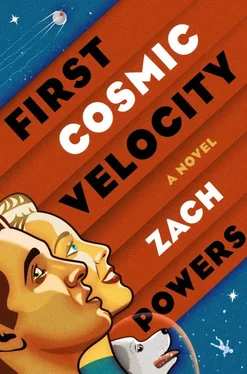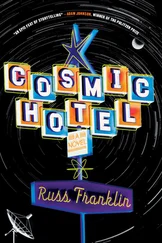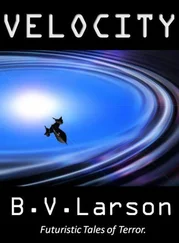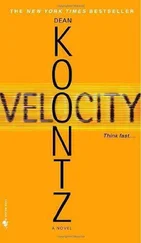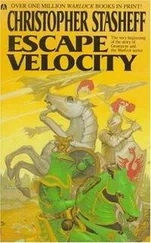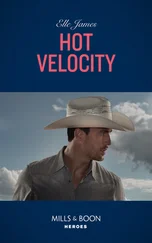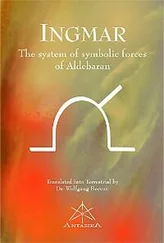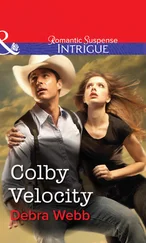“Don’t underestimate yourself, Leonid,” said the Chief Designer.
“Of course not,” said Leonid. “I’m a Soviet hero.” He ran his fingers across the bottom of the medals on his chest—a new set to replace those he had abandoned in Kharkiv—as if sounding chimes.
Nadya’s voice sparked from the radio, not words but humming, and not her usual atonal tune. This song was different but familiar. Leonid found himself humming along. So was the Chief Designer. And Mishin and Bushuyev. The song was one of Giorgi’s, one he had always sung to the plucked accompaniment of the balalaika. Leonid and the Chief Designer smiled first at the radio and then at each other.
“Sometimes,” said the Chief Designer, “I feel that she’s the hero of my very own life. I felt that way before her first launch, and again now. I’m just watching from the side.”
“Now who’s the one underestimating?”
The Chief Designer walked to the radio and Leonid followed.
“Hello, Nadya,” said the Chief Designer. “Just a little longer.”
“Let’s go already,” said Nadya.
“You’ve waited years,” said Leonid. “Another minute won’t kill you.”
Leonid cringed at his choice of phrase.
The Chief Designer placed his hand on Leonid’s shoulder and squeezed.
“It’s time,” he said. And then into the microphone, “It’s time.”
The final countdown passed in silence. The Chief Designer pushed a button, conspicuously red, and the rocket ignited. The petals of the launchpad folded away as the flames leapt up to consume them. The rocket reached the sky and kept climbing.
After the launch, all the technicians filed out. Only the Chief Designer, Leonid, Mars, and Mishin and Bushuyev remained. Someone had shut off the sickly fluorescent lights overhead. Leonid’s face was lit only by the glow of the buttons on the console.
“Leonid, can you hear me?” he asked.
“Who is it?”
“It’s your brother.”
“Oh, good. I was concerned that I wouldn’t get to speak with you again.”
“Nadya is up there with you. And Kasha, too.”
“Ah! I thought I saw them.”
“That’s unlikely. There’s more space than you imagine.”
“What’s there to imagine? I’ve seen it all. I have nothing to do but look out this window. Can you tell the Chief Designer to add a larger window on his next spacecraft?”
“I’m here,” said the Chief Designer. “I’ll add more and larger windows.”
“Good, good.”
There was a long moment of only static.
“Will they come back?” asked Leonid from the capsule.
“Who?” asked his brother.
“Nadya and Kasha.”
“We’ll bring them home,” said the Chief Designer.
“Thank god,” said Leonid.
“Did you see him?” asked the other Leonid. “Is god up there, after all?”
“Don’t be ridiculous. There’s no such thing as heaven. All around me is literally nothing. But you know, I like the idea of that. I like that what I have now is the only important thing. Even if it’s not much.”
“Thank you,” said Leonid, the one on the ground. “You’ve always been a good brother to me.”
“I’m very thirsty. Of the things I don’t have here, water is what I miss the most. I’m very, very thirsty.”
A loud click came through the speaker.
“What was that?” asked the Chief Designer.
“It’s time,” said Leonid, his voice distorted. He was not talking directly into the microphone. “I’m going outside to stretch.”
“You can’t,” said Leonid. “You’ll die.”
“Do you still believe I’m really alive? It’s time to go. I’m opening the door.”
The hiss of rushing air, a whine of feedback, the stark silence of space. At first like falling, and then you float.
My deepest gratitude goes to the real cosmonauts, engineers, scientists, staff, and dogs of the Soviet space program, who inspire me to strive for big, impossible things.
Thanks to my agent, Annie Bomke. The people at Putnam have been outstanding to work with, especially my editor Sara Minnich, Patricja Okuniewska, and all the editors, designers, marketers, publicists, and administrators who’ve been part of the book-making process.
Christopher Berinato, Gino Orlandi, and Joseph Schwartzburt read the first draft of this book and gave me the feedback I needed to complete it.
Love and thanks to Catherine Killingsworth, Gino (again), and Kakashi the dog for letting me use Kakashi’s description for my little space dog, Kasha.
Thanks to the staff at Gallery Espresso in Savannah, Georgia, where most of this book was written. Thanks to Joni and Chris at The Book Lady Bookstore for being champions of local writers. Love to the whole Savannah coterie: Brian Dean, Sarah Lasseter, Erika Jo Brown, B.J. Love, Alexis Orgera, Ariel Felton, Jenny Dunn, Alison Niebanck, Billie Stirewalt, Brennen Arkins, Beverly Willett, Traci Lombardo, Blake “Allfather” Patrick, Danon Jade McConnell, Chike Cole, Adam Davies, Morgan Harrison, Chad Faries, Maria Dixon, Jason Kendall, Patricia Lockwood, Josh Peacock, Sarah Bates Murray, Christy Hahn, Jessi-Lyn Curry, Insley Smullen, Harrison Scott Key, Shea Caruso, and too many more to name. Thanks to Justin Gary and old friends from my long-ago Atlanta days.
To my rad writer pals for making writing not just an activity but a community: Thomas Calder, John R. Saylor, Aaron Devine, Karen Russell, Nate Brown, Philip Dean Walker, John Copenhaver, Robert Kerbeck, Bridget Hoida, Bryan Hurt, Lindsay Chudzik, Jonathan Church, Emma Komlos-Hrobsky, Rob Spillman, Sam Ashworth, Gale Marie Thompson, and everyone at BOA Editions. Zach Doss, we miss you.
Thanks to The Writer’s Center, my literary home in the D.C. area, and to my colleagues Margaret Meleney, Laura Spencer, Grace Mott, Laureen Schipsi, Brandon Johnson, Tessa Wild, and Amy Freeman.
I owe a debt to these authors and editors of books on the Soviet space program: Asif A. Siddiqi ( Sputnik and the Soviet Space Challenge ); Siddiqi and James T. Andrews ( Into the Cosmos ); Eva Maurer, Julia Richers, Monica Rüthers, and Carmen Scheide ( Soviet Space Culture ); Colin Burgess and Rex Hall ( The First Soviet Cosmonaut Team ); Nick Abadzis ( Laika ); Jim Ottaviani, Zander Cannon, and Kevin Cannon ( T-Minus: The Race to the Moon ).
In memory of Jeremy Mullins and Kirk Lawrence. It’s been ten years, but you’re still the two people who’ve pushed my creativity the most.
In honor of everyone, human and canine, who died in pursuit of the cosmos.
Thank you to my brother, Josh, my parents, and the whole family for being supportive of life paths as diverse as rocket science and writing.
All my love to Stephanie Grimm, who I think is quite nice.
Zach Powersis the author of Gravity Changes , which won the BOA Short Fiction Prize, and his work has appeared in such places as American Short Fiction , Black Warrior Review , The Conium Review , and the Tin House blog. First Cosmic Velocity is his first novel.

What’s next on your reading list?
Discover your next great read!
_________
Get personalized book picks and up-to-date news about this author.
Sign up now.
Читать дальше
